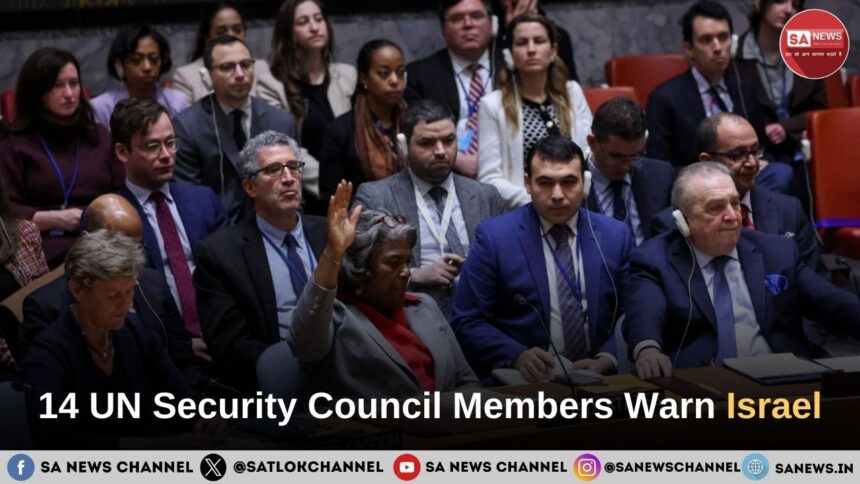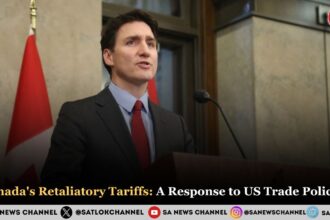As of August 27, 2025, 14 members of the United Nations Security Council issued a joint statement urging Israel to take immediate action to address the famine in Gaza. Their plea to Israel marks one of the very few instances where the United Nations Security Council has come to such an agreement. The one member who did not sign along was the United States of America, which is also the closest ally of Israel.
In the statement, the members approved the report of the Integrated Food Security Phase Classification (IPC), which is a United Nations supported global hunger tracking system. The statement further expresses a catastrophic amount of concern over the humanitarian situation in Gaza. Through the statement, the members of the council issued a statement where they strongly oppose the use of starvation as a warfare tactic, and such acts as a starvation siege, which is a grave breach of international humanitarian law.
What the UN Experts Found
On August 22, 2025, the IPC’s Famine Review Committee confirmed famine conditions in Gaza City and surrounding areas. Without a significant increase in aid access, the report warns, famine could spread to central areas like Deir al-Balah and Khan Younis by late September.
The data is stark:
- Approximately 514,000 Gazans are currently facing Catastrophe-level hunger (IPC Phase 5), with projections of 641,000 by September’s end.
- More than 1.14 million people are currently facing Emergency-level food insecurity (IPC Phase 4).
- The World Health Organization (WHO) has reported the identification of 12,000 children with acute malnutrition in July 2025, pointing to an upsurge in acute malnutrition among children.
The committee highlighted that the famine is a man-made crisis that could be avoided if aid is scaled up and delivered without obstructions.
What the 14 Nations Said
The joint statement demanded:
- An immediate and permanent ceasefire.
- The release of all hostages.
- The removal of all restrictions on humanitarian deliveries into and within Gaza.
- Full respect for international humanitarian law, which prohibits the deliberate starvation of civilians.
The members declared: “Famine in Gaza must be stopped immediately.”
The United States’ absence from the statement underscores a diplomatic divide within the Council.
The U.S. Position
The U.S. supports Israel’s right to security against Hamas and states that it is working with international partners to improve the flow of humanitarian aid. U.S. Acting Ambassador Dorothy Shea expressed doubts about the IPC’s report on August 27, 2025, citing concerns about methodological rigor, while acknowledging the issue of hunger as a serious matter. This position underscores increasing recognition from the world that Gaza’s famine is a political choice, rather than simply a result of war.
Situation on the Ground
The situation in Gaza is deteriorating rapidly:
- Israel has intensified military operations in Gaza City, designating multiple districts as active combat zones.
- The Israeli military has ended “tactical pauses,” which previously provided limited windows for aid convoys to deliver supplies.
- Damaged roads, proliferating checkpoints, and ongoing fighting have rendered aid deliveries sporadic and insufficient, with over 6,000 aid trucks stalled at borders.
Gaza’s health ministry, verified by WHO, reports 89 deaths from malnutrition in the 22 months since October 2023, including 133 in August 2025 alone. The death toll is expected to rise without improved aid access. Israel disputes the famine claims, asserting it permits aid under strict security checks to target Hamas fighters, noting over 100,000 aid trucks have entered Gaza since the war began.
Significance of the IPC Report
The IPC classification system is universally recognised for famine evaluation, and the Gaza results underwent independent review by the Famine Review Committee to ensure neutrality. Through their acceptance, the 14 UNSC members have dismissed Israel’s allegations of prejudice in the data that was presented.
Starvation as a Method of Warfare: Legal Aspects
Starvation of civilians as a method of warfare is prohibited by international humanitarian law and UNSC Resolution 2417 (2018) violence in armed conflicts is specifically codified in. The Resolution also requires humanitarian access with no restrictions in conflict areas. By invoking this Resolution, the 14 members of the Council imply that the ongoing humanitarian aid restrictions by Israel may be examined under international law for potential violations.
What Comes Next?
1. Immediate Ceasefire and Release of Hostages: This demand calls for an immediate ceasefire and the release of all hostages, linking the cessation of hostilities and hostage release to the lifting of famine as both conditions for the restoration of stability.
2. Unhindered Access of Aid: Humanitarian organisations warn that famine will deepen without sizable, predictable and large-scale aid. At least 600 aid trucks a day are needed.
3. Risk of Escalation: With renewed offensives and the closing of aid corridors, there is no time left to prevent the deaths of millions, as outlined by humanitarian organisations.
The Bigger Picture
The UNSC’s 14-to-1 split reflects a global consensus: Gaza’s famine is real, documented, and preventable. It is uncertain whether Israel will change its policies due to this diplomatic pressure. The Council’s statement, however, serves as a call for immediate action in compliance with the law, to a crisis that is begging for attention.
“Love Over Hatred”
Chyren Saint Rampal Ji Maharaj, conveyed the message through His spiritual discourses, that the reality of peace and prosperity can never be truly attained through conflict, violence, or the oppression of the weak. Starvation, war, and exploitation are the effects of human greed and ignorance of divine principles. By His spiritual knowledge, He means to say that problems cannot be solved by temporary ceasefire or political negotiations, but by the adoption of the real worship of the Supreme God Kabir Saheb, which brings the feeling of love and mercy for all in the people.
Leaders caring for humanity’s problems like Gaza’s famine must behave in an enlightened manner and accept the teaching irrespective of narrow minded interests that all people are the children of the same supreme father. Only then wars will stop, hostile relations will end, and hatred will turn to love and people will get united and resources will be used for feeding the hungry rather than for destruction.
FAQs about Fourteen UN Security Council members jointly warned Israel to stop famine in Gaza
Q1. How many UN Security Council members supported the joint statement urging Israel to stop famine in Gaza?
Answer: 14 members supported the statement; only the United States did not join.
Q2. What did the IPC’s Famine Review Committee confirm on August 22, 2025?
Answer: It confirmed famine conditions in Gaza City and warned famine could spread to Deir al-Balah and Khan Younis by late September.
Q3. How many Gazans are currently facing Catastrophe-level hunger (IPC Phase 5)?
Answer: Approximately 514,000 people, with projections of 641,000 by the end of September 2025.
Q4. What are the main demands made in the joint statement by 14 UNSC members?
Answer: An immediate and permanent ceasefire, release of hostages, unrestricted humanitarian aid access, and adherence to international humanitarian law.
Q5. What does UNSC Resolution 2417 (2018) prohibit in armed conflict?
Answer: It prohibits the starvation of civilians as a method of warfare and requires unrestricted humanitarian access in conflict zones.









